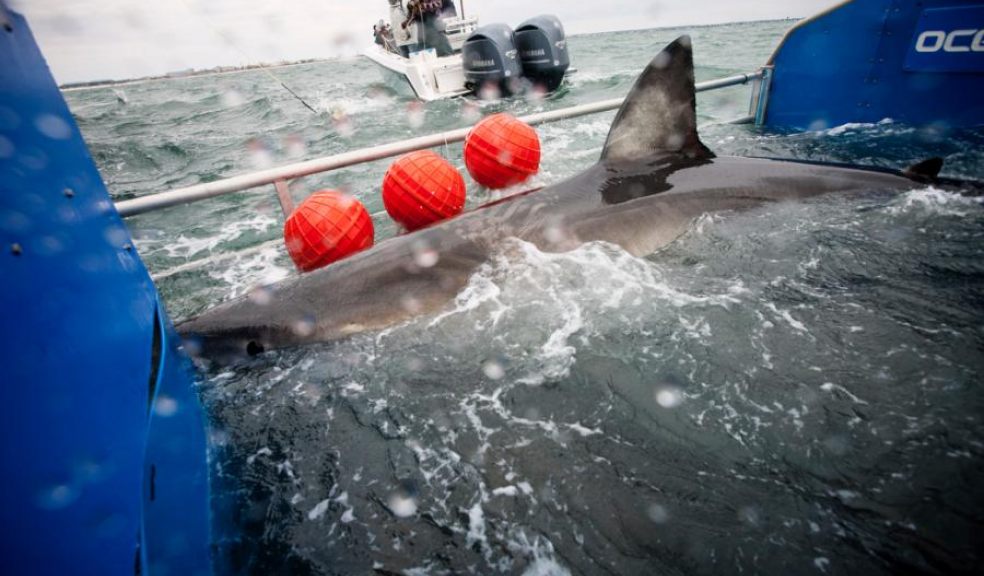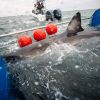
Great White Shark on course for South West Coast
A 15ft great white shark named Lydia is on course to arrive at the South West coast later this week coast according to scientists tracking her via satellite tag.
Lydia, already the first recorded example of her species to cross the Atlantic, is now less than 1000 miles from UK shores and if she keeps to her current course and speed may arrive at the Cornish coast within a few days.
Lydia was first tagged off the coast of Jacksonville, Florida, last March by the researchers for the Ocearch scientific project and since then US scientists have been tracking Lydia for 19,000 miles.
Dr Gregory Skomal, one of the team following Lydia's progress, told BBC Radio 5 live's Up All Night: "We have been following her literally just over a year but she doesn’t swim in a straight line, no fish does, so she’s meandered all over the place.
She spent quite a bit of time right off o the coast of the US then moved up to Canada. She has been spending quite a lot of time off-shore in deeper waters before heading to the east.”
Dr Skomal’s team of marine biologists at the Ocearch project aims to tag sharks to gain a better understanding of shark behaviours and movements.
They have done this by tagging around 70 varying species of sharks, such as Lydia, using a specially designed hydraulic platform attached to their research vessel which allows them to safely lift the sharks out of the water.
The moment Lydia was captured and tagged was caught on film which is available below the article.
Great whites became infamous as ‘man eaters’ following their portrayal in Stephen Speilberg’s 1975 film Jaws, in which a great white terrorized an American coastal community.
While great whites do make up the greatest number of recorded attacks on humans these attacks are largely non-fatal and are thought to mainly be cases of mistaken identity.
Sadly the great white’s fearsome reputation made the species a popular target for game fishing and is thought to be responsible for a huge decline in the species since the 1970s.
While no accurate population figures for great whites yet exist, the species is now considered vulnerable by the majority of the scientific community and is now a protected species.
Whether or not Lydia will make it to the South West coast is still questionable but as one of the first great whites to be tracked by researchers the data she provides could be invaluable to marine biologists across the world.
You can follow Lydia’s progress as well as several of the other sharks being tracked by Ocearch by visiting their website. http://www.ocearch.org/
pictures and video via Ocearch














